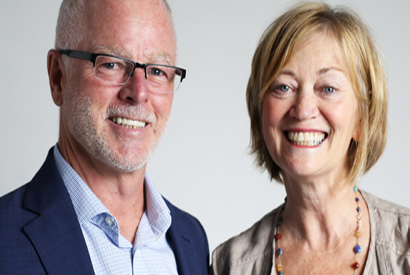News
Mike Pond: Addiction therapist develops new evidence-based resources

Michael Pond is a therapist who spent 20 years treating people with addiction until he himself lost everything to alcoholism. After a grueling journey back to wellness, he is once again practicing psychotherapy in Vancouver. Pond documented his failed attempts at using the only treatment offered to him at the time, Alcoholics Anonymous, and his process of finding recovery via other means, in his memoir, Wasted, co-written with his partner, Maureen Palmer. They made an accompanying documentary to highlight the importance of utilizing addiction treatments based on sound scientific research, including medications, motivational strategies, and treatment for trauma. The documentary, also entitled Wasted, aired on The Nature of Things, a prime-time Canadian science television program, in January 2016 and will screen at the Reel Recovery Film Festivals this fall and winter and at the Harm Reduction conference in San Diego November 3- 6th.
A new website launched with the film, Addictionthenextstep.com, offers an interactive guide for family members and loved ones of those struggling with addiction. Built in collaboration with the Center for Motivation and Change (CMC), the guide is an online therapeutic tool that teaches positive ways of communicating with a substance user that are proven to help them get well. Free and available online 24/7, the guide is based on therapies like motivational interviewing and CRAFT (Community Reinforcement and Family Training). It provides scenarios for parents and partners of those with SUD’s (such as: “My child is coming home and I know he’s been using. What should I do?” and “I think my partner may be depressed AND using. Is it time for rehab? A therapist? I am not prepared for this and don’t know how to help.”). Within each scenario, there are five videos (Intro, Understanding, Self-Care, Communicating and Taking Action) that provide information, tips and tools.
“I don’t care what you call it: disorder, disease, condition, learned behavior, self-medicating. The end result is the same: someone battling a serious addiction is very, very sick and like anyone else battling a life-threatening illness, is entitled to compassionate medical care,” states Pond.